Among the 17 victims of the terror attacks in Paris on January 7th, 8th and 9th were four Jews gunned down at a kosher supermarket in the porte de Vincennes area of east Paris. Since then the leaders of Jewish community groups in France have spoken out about the fear and suffering felt by many Jews in France and about what they see as the indifference - and in some cases the hostility - of parts of French society to their plight over the last decade amid a series of earlier high-profile attacks.
The first of these was the 2006 kidnap, torture and murder of a young Jewish man, Ilan Halimi, by a group called the 'Gang of Barbarians'. The second was the murder of three pupils and a teacher at a Jewish school in Toulouse by Mohamed Merah in March 2012, while the third was the slaying of four people at the Jewish Museum in Belgium in May 2014. French national Mehdi Nemmouche has been extradited from France to Belgium in relation to these murders. There was no mass marches in the streets of France after those attacks. So the massive demonstrations that took place on January 11th following the Paris killings are seen by many French Jews as a new and welcome departure, even if they have not succeeded in banishing all their doubts.
To find out more about the nature of anti-Semitism in France today and how it has changed over the past decade, Mediapart met with the current president of the influential Jewish students organisation the Union des étudiants juifs de France and four of his predecessors. Current head Sacha Reingewirtz, aged 28, who was elected president of the UEJF on October 2013, is a graduate of the Paris Bar School; Jonathan Hayoun, 30, president from September 2011 to December 2013 is a film director; Arielle Schwab, 31, president from November 2009 to September 2011, is an account director at marketing and advertising firm Havas-Paris; Raphaël Haddad, 32, president from July 2007 to November 2009, is a communications advisor; Benjamin Abtan, 34, president from July 2005 to July 2007, is president of Mouvement antiraciste européen (EGAM) and a member of the national committee of the anti-racist group SOS-Racisme.
The five were not chosen as 'typical representatives' of Jewish students and young adults living in France. Instead they were selected because, as the head of an organisation with 15,000 members, they have been close observers of dramatic events that have taken place over the past decade in France. All spoke freely to Mediapart about the growth in the level of prejudice, of the Jewish community turning in on itself, of the temptation to leave France and of the community’s links with Israel. As a group they bear witness to a growing intensification of anti-Semitic violence and to a growing sense of isolation among Jews. While the marches of January 11th are felt to have “calmed” the situation, the fear of being killed haunts everyone in the community, to the point where many Jews have considered moving to Israel. Here are their accounts.
-------------------------------------------------------------------------
As soon as they heard about the massacre at the Charlie Hebdo offices on Wednesday January 7th, Sacha Reingewirtz and other members of the EUJF quickly made their way to the scene. They felt they had to. “We dropped everything,” he explains. “We had to go there to show our support. Charb [editor's note, the satirical weekly's editor, real name Stéphane Charbonnier] was a friend. He had come to see us several times. We had defended Charlie at the time of the trial after the publication of cartoons of Muhammad. We joined in the evening demonstration. On the Friday we were in the process of finalising the preparations for the Sunday demonstration [January 11th] - we still had to finish off the message for it - when we learnt what was happening at the kosher supermarket. There was the uncertainty over the number of deaths, the blackmail of 'Free the Kouachi brothers [editor's note, Saïd and Chérif Kouachi who had carried out the Charlie Hebdo massacre and were then involved in their own stand-off with police] or we'll kill the hostages', the assault, the panic that swept through Jewish schools, the closing of community buildings for fear that there might be simultaneous attacks.”
During this fast-moving period Sacha Reingewirtz was on the front line as head of a Jewish association. The idea of organising a gathering of people close to the scene of the supermarket tragedy was immediately taken up. “Ten thousand people came, local people above all and lots of ministers, with [prime minister] Manuel Valls who declared: 'France without Jews is not France',” he recalls.

Enlargement : Illustration 1

The downward spiral into horror and the variety of different targets meant that the fate of those who defended freedom of expression had now become linked with Jews and police officers. The message for the January 11th march changed. On the placards the slogan 'Je suis Charlie' was accompanied by 'Je suis juif' ('I am Jewish') and 'Je suis policier'. Before the march in Paris even officially started the organisers and politicians were overwhelmed by the number of people taking part.
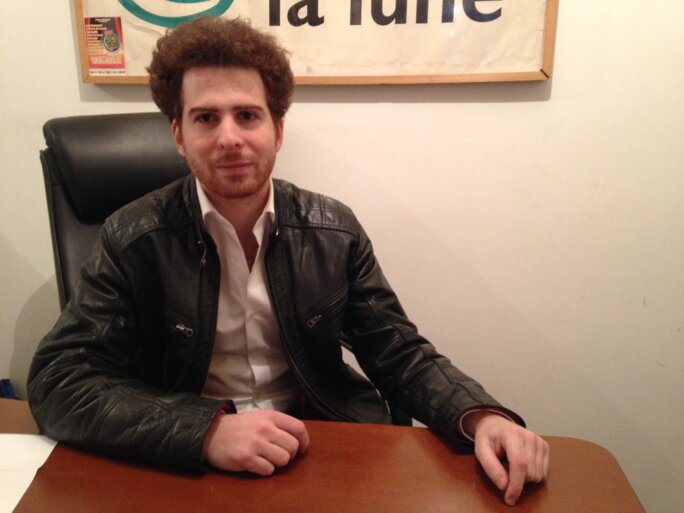
Enlargement : Illustration 2

“It was the best things that could have happened,” says Sacha Reingewirtz. “That day will remain as one of the most powerful memories of my life. I'm very proud of it. I hope that it will reinforce the vigilance of each and every one of us in the coming months. The French people have not fallen into the trap of the [editor's note, far-right] Front National and the lumping together of ideas [editor’s note, in other words equating Islam with terrorism]. The fight is going to be long and difficult: we must fight against hate, all forms of hate, whether they come from the extreme right or the jihadists.”
A new era has begun and the UEJF president thinks that the actions of 24-year-old Lassana Bathily, an illegal immigrant from Mali who has just been granted French nationality after hiding six people from kosher supermarket gunman Amedy Coulibaly, are a symbol of that. Reingewirtz has met Bathily and is using his own contacts to help find him a job. “Lassana is a hero. These days we need these kinds of positive figures. Pupils at secondary schools can identify with him. He's living proof that all paths are possible,” says Sacha Reingewirtz. As if to lend weight to his comments, the student leader points out that he is not by nature an optimist. “I'm part of that generation that has grown up under the protection of the police and for whom anti-Semitism has been accepted as a fact of life,” he says.
- 'There's anti-Semitism everywhere in Europe. But only in France are there anti-Semitic murders'
Reingewirtz's predecessors at the UEJF felt the same enthusiasm during the march on January 11th. But they are also all concerned that a large number of French Jews are now worried about their personal safety. The succession of murderous attacks over the years has made them all feel they are a target. Armed soldiers now guard Jewish schools and parents are afraid for their children, with the pupils themselves feeling in danger. “Whenever a door slams in a restaurant or grocery shop people look around nervously, as if they were going to be attacked,” says Jonathan Hayoun. Having grown up in Paris, he was educated in a Jewish school on boulevard Voltaire, not far from porte de Vincennes where the supermarket killings took place. “When the demo passed in front, I was deeply moved. My parents live in porte de Vincennes. We were hit close to home.”
Arielle Schwab has lived in the place des Fêtes in the 19th arrondissement or district, further to the north in Paris, for a long time. “The attacks have entered the capital. The message is that anyone can be hit. No Jew in France is safe any more,” she says. The feeling of unease has prompted some unexpected reactions. “Jews have had a tendency to barricade themselves away in recent years,” says Arielle Schwab. “The new questions they're now asking themselves are whether they're right to carry on going to [Jewish] community places and whether it's not now time to change the establishments they visit.”
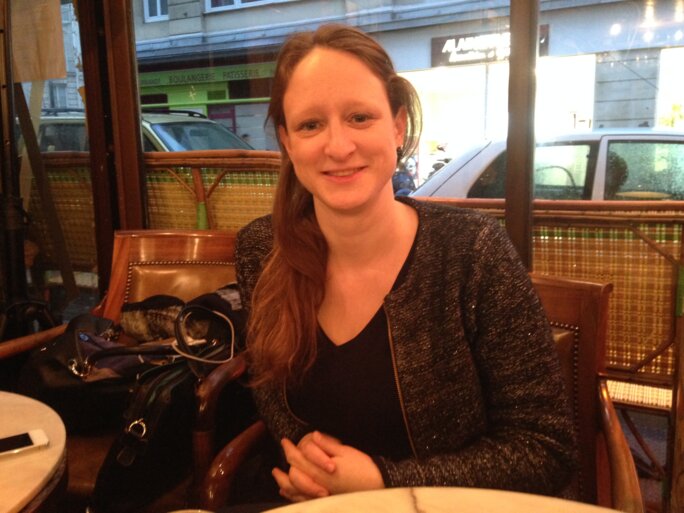
Enlargement : Illustration 3

The current anguish is also tinged with a certain bitterness, with people recalling that there was little or no public reaction after previous killings of Jews. “After Ilan Halimi's death we felt we weren’t understood as the anti-Semitic nature of his death was not recognised straight away,” says Arielle Schwab. “With Toulouse [editor's note, the Merah shootings] the physical threat became palpable. Children were dead, there were no more limits. Our daily places such as schools were no longer a protection. The attack at the Jewish Museum in Brussels created an intolerable feeling that events kept on being repeated. That it was starting again. But that didn't seem to be enough. French society reacted very little after those tragedies. The French did not rise up. Overall they appeared unconcerned. We had the impression that the death of a Jew might elicit sorrow, pity at the most. But horror, indignation, like we saw on Sunday [January 11th], no. The absence of massive reaction fuelled a deep feeling of solitude,” she says.
In January 2006 the then-head of UEJF Benjamin Abtan was in Rwanda when he learned that Ilan Halimi had died. The young man had been kidnapped, held against his will and tortured by a group of 20 people in the Paris region who had singled him out because he was Jewish and, as such, was therefore assumed to be wealthy. “This was during a time of 'competing memories' [editor's note, a controversial notion where some – including the French comedian Dieudonné - set collective memories of various groups against each other, for example the Holocaust on the one hand against black slavery on the other],” recalls Abtan. “In the 2000s Dieudonné was involved in spreading the idea that we spoke too much about the Shoah [editor's note, Holocaust] and not enough about slavery. At the UEJF we were trying to break this way of thinking. At the same time the Jewish world was shrinking dangerously. Apart from the United States, Israel and France nothing else existed. In a bid to get the world to get involved in a dialogue of memories we decided to go to Rwanda. A genocide had just taken place. It was possible to go and meet people who had escaped. We committed ourselves with the students there to commemorating the genocide of the Tutsi. They decided to commemorate the Shoah. It was at that moment that news of Ilan Halimi's death reached us. We wrote the first press releases in a cyber café in [Rwandan capital] Kigali, thousands of kilometres from the tragedy. For many of us it was the first demonstration that we'd organised. Our aim was to make it an anti-racist gathering, while CRIF [editor's note, the Conseil Représentatif des Institutions juives de France, an organisation bringing together various Jewish groups and which is today led by Roger Cukierman] had a more [Jewish] community-based vision of it. One hundred thousand people took to the streets. One hundred thousand people, even though the anti-Semitic nature of the murder was not remotely in doubt. After Toulouse there were 15,000 of us in the street.”
The disappointment at the poor turnouts was even harder to take given that France has a poor track record when it came to attacks on Jews. “There's anti-Semitism everywhere in Europe. But only in France are there anti-Semitic murders,” says Benjamin Abtan. He says he again felt French society's “insensitivity” at the gathering that took place outside the kosher supermarket in Paris's porte de Vincennes following the kidnap tragedy there. “There wasn't a lot of people. It was just Jews and the government. The authorities have stood by the community for a decade. Each time something has happened they have been there. The French people, less so. In this respect January 11th reassured me.”
- 'The spreading of prejudice has taken place in an insidious manner'
Jonathan Hayoun was at the head of the UEJF at the time of the Toulouse killings. The “indifference” of the French public left its mark on him too. “Twenty thousand of us marched. It was too few,” he says today. He thinks this lack of a major reaction stems from the fact that anti-Semitism has come to be seen as a normal occurrence. Over the course of the last decade the number of violent attacks on Jews in France has grown. During the first six months of 2014 the number of incidents recorded by the ministry of the interior rose to 327, against 423 for the whole of 2013. A peak was observed in January 2014 after the banning of a show by Dieudonné and the so-called 'Day of Anger' demonstration.
Since the start of the 2000s the number of acts and threats recorded each year has been running at six to ten times greater that it was during the 1990s. According to the state-run human rights commission the Commission nationale consultative des droits de l'homme (CNCDH), which documents the figures, there is a “disconnection” between the number of acts, which is rising, and the number of negative comments, which has been falling since the end of World War II. However, it appears that the growing openness of society since the war stopped in 2009; according to polls the indicators pointing to a “rejection of others” have grown since that year.
The UEJF presidents whom Mediapart spoke to have all noticed the situation getting appreciably worse. “For a long time anti-Semitic attacks have been linked to the Israeli-Palestinian conflict,” says Raphaël Haddad. “That's still the case. The new element is that each anti-Semitic act leads to others. For example, the Merah attacks were followed by violent incidents that were unconnected with the context of the Middle East.”
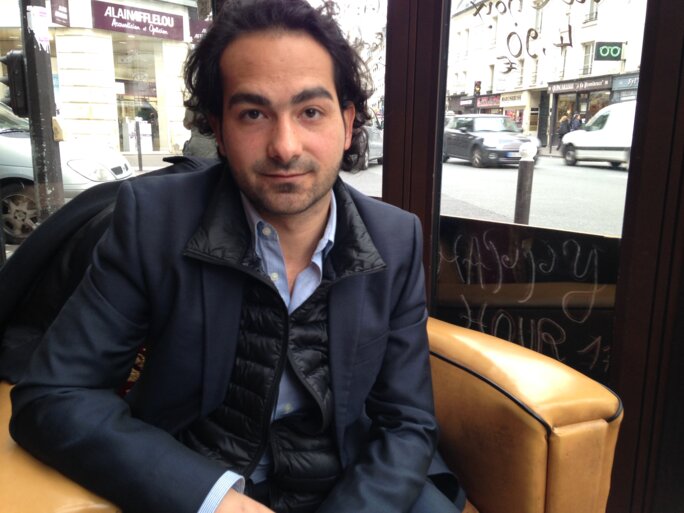
Enlargement : Illustration 4

Jonathan Hayoun says he first got involved in the association’s work after he noticed that the “dirty Jews” slogans (“sales juifs” in French) daubed on the walls of his university provoked no reaction either from the student unions or from university management. “The spreading of prejudice has taken place in an insidious manner,” he says. “First of all anti-Semitic comments were no longer countered, then they became uninhibited. French people became used to them.” This kind of seeping racism does not just apply to anti-Semitism, say the UEJF presidents. “When [justice minister] Christiane Taubira was compared to a monkey, France did not rise up,” says Sacha Reingewirtz with regret. At that time, November 2013, just a few thousand people took to the streets in protest.
The result of the growing stigmatisation of Jews in France is that members of the community have changed their behaviour; in some cases this has meant cutting back on religious activities, more often it has meant keeping a lower public profile. “Unlike other people living in France, overall we don't suffer discrimination simply because we are Jewish. Being Jewish doesn't stop you getting a job or housing,” says Jonathan Hayoun. “On the other hand, a form of self-censorship has taken hold. At university I've heard of students who prefer to hide the fact they're Jewish out of fear that they'll have to justify themselves on such and such a choice of Master's or thesis. It's not discrimination but fear of discrimination. As for the kippa, it's well known: fewer and fewer men are wanting to wear it and if they need to wear something they prefer to sport a hat. On the other hand I've never heard of people refusing to eat kosher food so that they don't stand out.”
Arielle Schwab says: “The success of Jewish schools is explained largely by the desire to protect children from insults and harassment.” She admits that at the height of the “Dieudonné affair” she avoided certain conversations “out of fear that a certain tolerance of anti-Semitism or, let's say, a carelessness, would show itself”.
The nature of the prejudices has not changed much. Jonathan Hayroun, who goes from class to class to try to counter stereotyped views as part of the UEJF's CoExist programme, notes that Jews continue to be perceived as dominating finance, the media and the world in general. The Roma people and gays, he adds, are just as badly treated. As for the way the prejudices are spread, this varies considerably.
One way is through conspiracy theories. Hayoun gives the example of the way in which Farida Belhoul last year managed to make a name for herself with her criticism of the 'gender theory' allegedly taught in French schools. “Her rhetoric went like this: she starts from the principle according to which gender theory serves to pervert young people from the estates, that the young also have their minds numbed by rap, that the rappers come from SOS-Racisme, who come from the UEJF, which is a member of CRIF, which is a member of the World Jewish Congress, and ends with the conclusion that Jews dominate the world and want to stop young people from the estates from breaking free,” he says.

Enlargement : Illustration 5

Some prejudices are more hidden and more tenacious, however, and Jonathan Hayoun says that intellectual arguments have been constructed to justify them. Now that Holocaust denial attracts fewer people, anti-Semitism has taken other forms, he says, highlighting the theory of “competing victims” mentioned earlier. A related theory is that of alleged “double standards” in the treatment of Jews and other groups, claims that are fuelled on social media by the speeches of essayist and publisher Alain Soral and passed on at Dieudonné's shows. While he was president of the UEJF, Hayoun had to deal with the epidemic of 'UnBonJuif' hashtags – essentially sick jokes along the lines of “A good Jews is...” - that appeared on Twitter in late 2012. The ensuing legal action against the American corporation ended with an improved procedure for signalling racist and anti-Semitic comments by users.
Google was also forced to change its search engine algorithm in 2012 after various French groups complained that its search results systematically placed the word 'Jew' (or 'juif' in French) after the names of personalities and public figures. “This obsession with knowing who was Jewish and who wasn't became unbearable,” says Hayoun. On February 22nd the current UEJF leadership is organising the first national conference on the fight against hate on the internet, aimed at encouraging online media to show responsibility in what is published.
'It's a shame to see how some radical groups exploit the Palestinian cause'
The tensions regarding anti-Semitism also affect the ranks of the Left in France. Among anti-racist activists, for example, there can be frictions when one person's anti-Zionism is perceived by others as anti-Semitism. “The links [between the two] are not systematic, but they occur frequently,” says Jonathan Hayoun. “When you're committed to defending the oppressed it's not abnormal to defend the Palestinian cause. But it's striking to observe the sliding between criticism of Israel's policies, the calling into question of the legitimacy of the state of Israel and the denial of the Jewish people,” he notes.
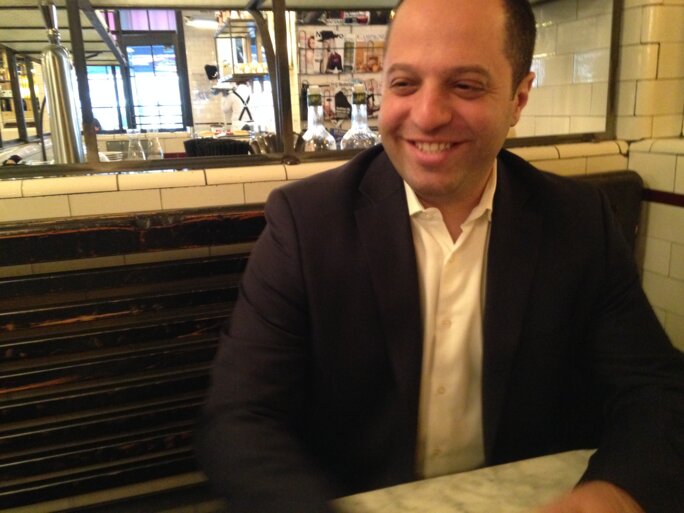
Enlargement : Illustration 6

The issue has divided the anti-racist movement since the Second Intifada at the start of the 2000s. It has re-emerged thanks to the demonstrations organised in the summer of 2014 in support of Gaza. “It's a shame to see how some radical groups exploit the Palestinian cause. Rather than making themselves peace advocates these people import the conflict into France and transform their hostility with respect to Israel into an animosity with respect to the Jews of Israel,” says Sacha Reingewirtz, who worries about the “crowd phenomenon” he has witnessed on these occasions.
However, the theory that there is now a “new anti-Semitism” developing among activists on the radical left and among the “youth from the suburbs” which is in contrast with the anti-Semitism of the extreme right, is treated with caution by the UEJF presidents. Those who deal daily with the issue of prejudice in society say they are concerned about all forms of stigmatisation, and say it is widely prevalent. “All secondary schools are affected, no one escapes,” says Benjamin Abtan.
As for the transition from verbal insults to physical attacks, this is being seen in areas with the largest Jewish populations, in other words in Sarcelles, a northern suburb of Paris, Créteil, to the south-east of the capital, Villeurbanne in the north-east of Lyon in eastern France and in the 19th arrondissement of Paris itself, says Arielle Schwab. She points out that the power of stereotypes is so great that pupils from working class areas trot them out about themselves. When you ask these pupils what the term “youths from the suburbs” means to them, she says, they use the words “delinquent”, “scum”, “housing estates” or “yobbo”.
Nonetheless, says Benjamin Abtan, there are genuine “historical differences between the descendants of Maghrebi [editor's note, North African] immigrants living in France and the Jewish communities from the Maghreb who had to leave their countries partly because of anti-Semitism”. All the time that their grievances are not redressed, he says, the memory of this trauma risks coming back to haunt them in France. “The generation that was hunted out once before fears that it will again be forced to pack its bags,” he says. For some of them France might prove to be just a transit country between their country of origin and Israel.
'That we're even thinking about whether to go to Israel is both new and worrying'
The temptation to leave France and go to live in Israel is no longer just a fantasy, even if only a minority of French Jews opt for permanent settlement there. According to the Jewish Agency for Israel, which recorded 7,231 departures for Israel in 2014, against 3,293 in 2013, the murders at the kosher supermarket in Paris could accelerate this trend. Jonathan Hayoun says that every family is now wondering about it. He adds: “That we're even thinking about whether to go to Israel is both new and worrying.” Arielle Schwab notes: “Aliyah [editor's note, the moving of Jews to Israel] has always been an issue in difficult areas where Jews feel in danger. Now new sections of society are affected. Some people from better-off levels of society, who have more means, are themselves feeling shaken about their identity. They feel their place in France has been called into question.”
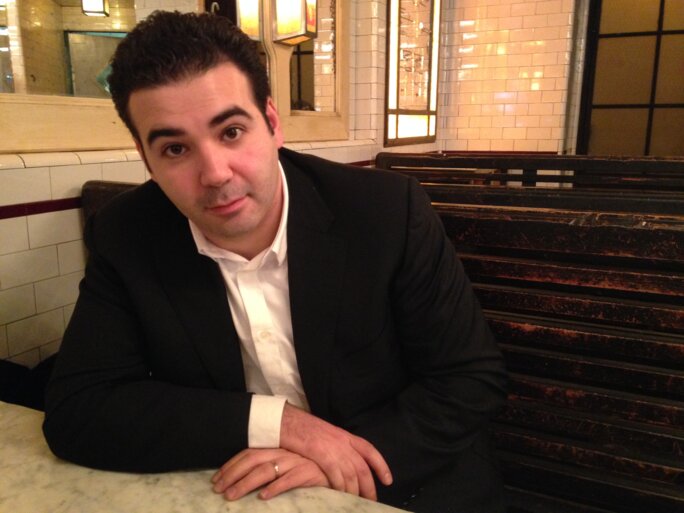
Enlargement : Illustration 7

None of the five UEJF leaders Mediapart spoke to, however, has considered leaving. “I am too attached to France and its history to imagine leaving this country,” says Sacha Reingewirtz, who grew up in Strasbourg in the north-east of France. A part of his family, who have been French for decades, comes from the Moselle area in the north east. “I would not like to give satisfaction to the anti-Semites, who think that we're foreigners, by leaving,” he adds. But his affection for Israel is still strong, a feeling shared by all his predecessors at the UEJF.
“I don't feel Israeli,” says Arielle Schwab, who herself has roots in Alsace in north-east France. “But I am very attached to that country for what it represents in the history of the emancipation of the Jews. We have a shared destiny with the people of that country. Like 80% of Jews in France I have family over there. When bombs fall it's not a question of ideology. Some of my cousins live in the south of Israel. They're directly subjected to rocket attacks. When I tremble for Israel I tremble in the proper sense.”
However, these family ties do not stop Arielle Schwab from feeling “very free in relation to Israeli politics”. She says: “I didn't elect this government, I don't feel represented by it. I frequently criticise its security policy. I associate with opponents. On the other hand I'm very vigilant when criticism of Israel becomes obsessional. This obsession often hides a problem with Jews.”
Another knock-on effect of anti-Semitism is that those who do not move to Israel have a tendency to turn in on themselves, towards the “community”. Benjamin Abtan has observed this trend with alarm for the past decade. “People live in a bubble, they only go to [Jewish] community places, always go on holiday together, mixing has disappeared,” he says. “The middle classes live together in the same districts. Those who remain on the housing estates are those who don't have the means to get out of them.” Abtan believes this turning in on itself represents a failure of community leadership. “The demand for more security, which served Nicolas Sarkozy's interests as they serve those of Manuel Valls today, is indispensable. But that can't be the sole perspective.”
This failure of leadership has had consequences. “By shutting itself into a close relationship with the local and national authorities, the Jewish institutions have, against their own wishes, fuelled the fantasy about Jews and power,” says Benjamin Abtan. “Alongside that they have treated the Jews who have come from the Mediterranean with a certain disdain and have not been able to express their suffering, which has left the field open for the extreme right.” He adds: “That someone such as [far-right MP and lawyer] Gilbert Collard is listened to, or that theories such as those of the 'Great Replacement' [editor's note, the idea that the French people are being replaced by immigrants] are being spread is indeed problematic.”
The Jewish body CRIF is itself singled out for some criticism. “The rightwards drift of people involved in representing Jews in France is a reality,” says Jonathan Hayoun. “As [CRIF president] Roger Cukierman himself says, the CRIF is not there to be a second Israeli embassy in France. I agree with that. This radicalisation worries me, even if one must accept it's not unique to the Jews. It concerns the whole of society.”

Enlargement : Illustration 8

What will remain of the great demonstrations seen on January 11th? “Some 'Dirty Jews' slogans have been crossed out in recent days,” says Hayorn. Arielle Schwab, meanwhile, has been “reassured” to see that the “awareness” prompted by the events of January had been widely felt, as she had feared there would simply be “selective indignation”. Whatever happens following January's events, there will now always be a sense of “before” and “after” the January 11th street demonstrations when it comes to assessing the country's reactions, she says.
Raphaël Haddad thinks those involved in civic society now need to grasp fully what has happened in recent weeks if things are to change. “It won't happen all on its own. The strategy for fighting against anti-Semitism must change. Symbolic acts are no longer enough. We must get massively involved in the secondary schools.” He also considers the position of Muslim institutions in France. “For years now the mosques' imams haven't known how to deal with the Salafists who compete with them. This battle must be waged. The debate must start,” says Haddad.
The current head of the UEJF, Sacha Reingewirtz, meanwhile hopes that the current 'Je suis Charlie' slogan heralds a “renewal of republican sentiment” and will lead to a new generation entering politics. And, more immediately, that it leads to the crushing defeat of the far-right Front National's Marine Le Pen in the presidential elections in 2017.
-----------------------------------------------------------------------------
- The French version of this article can be found here.
English version by Michael Streeter


